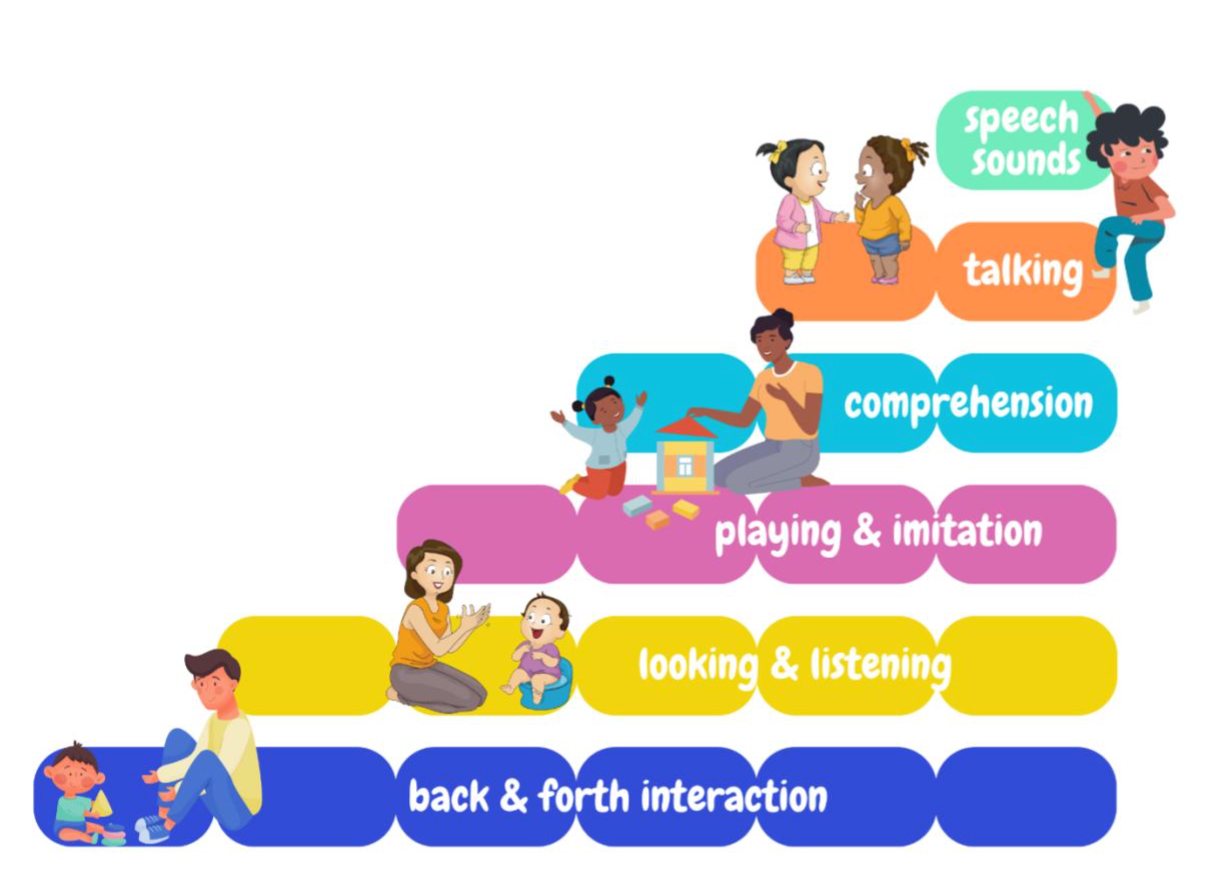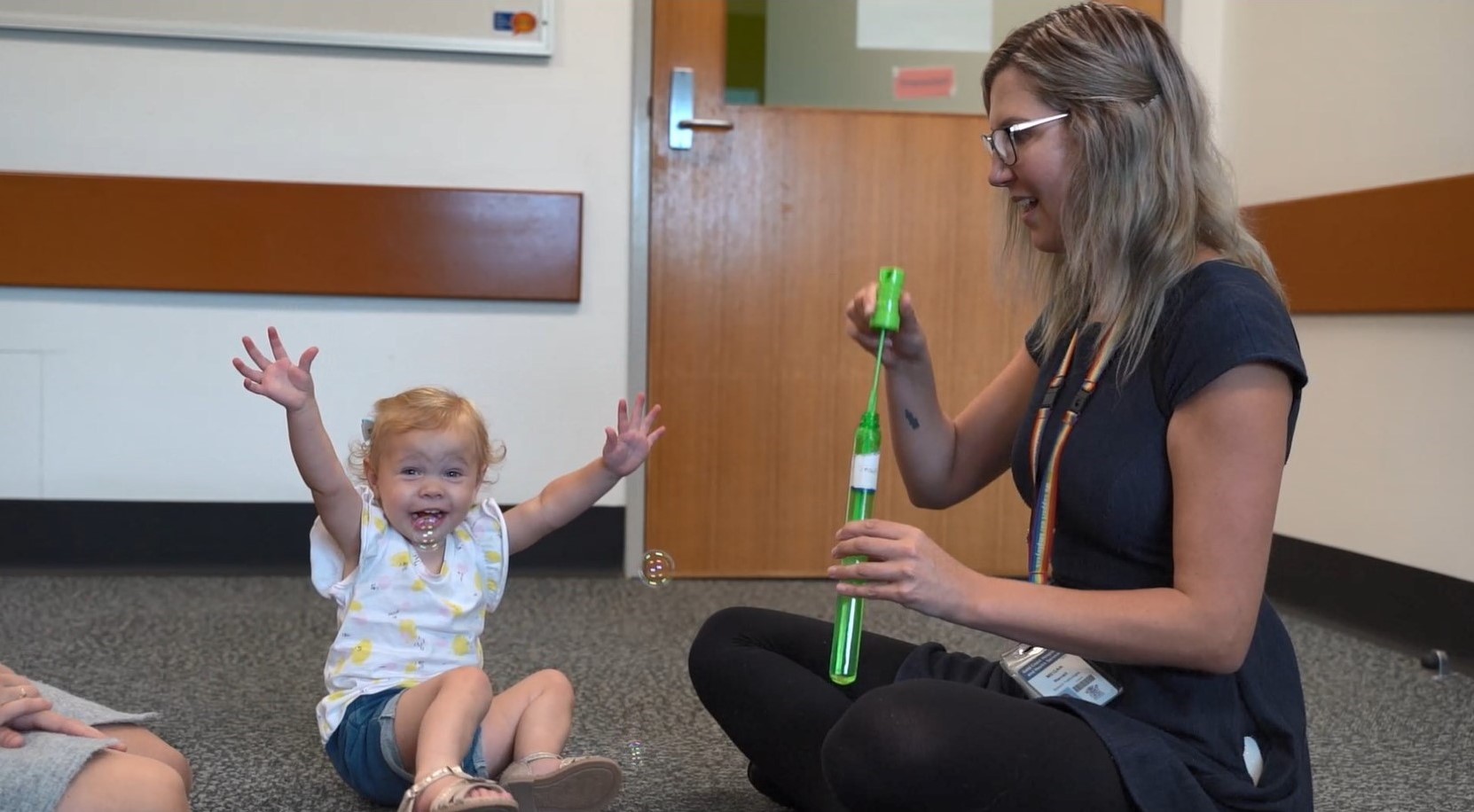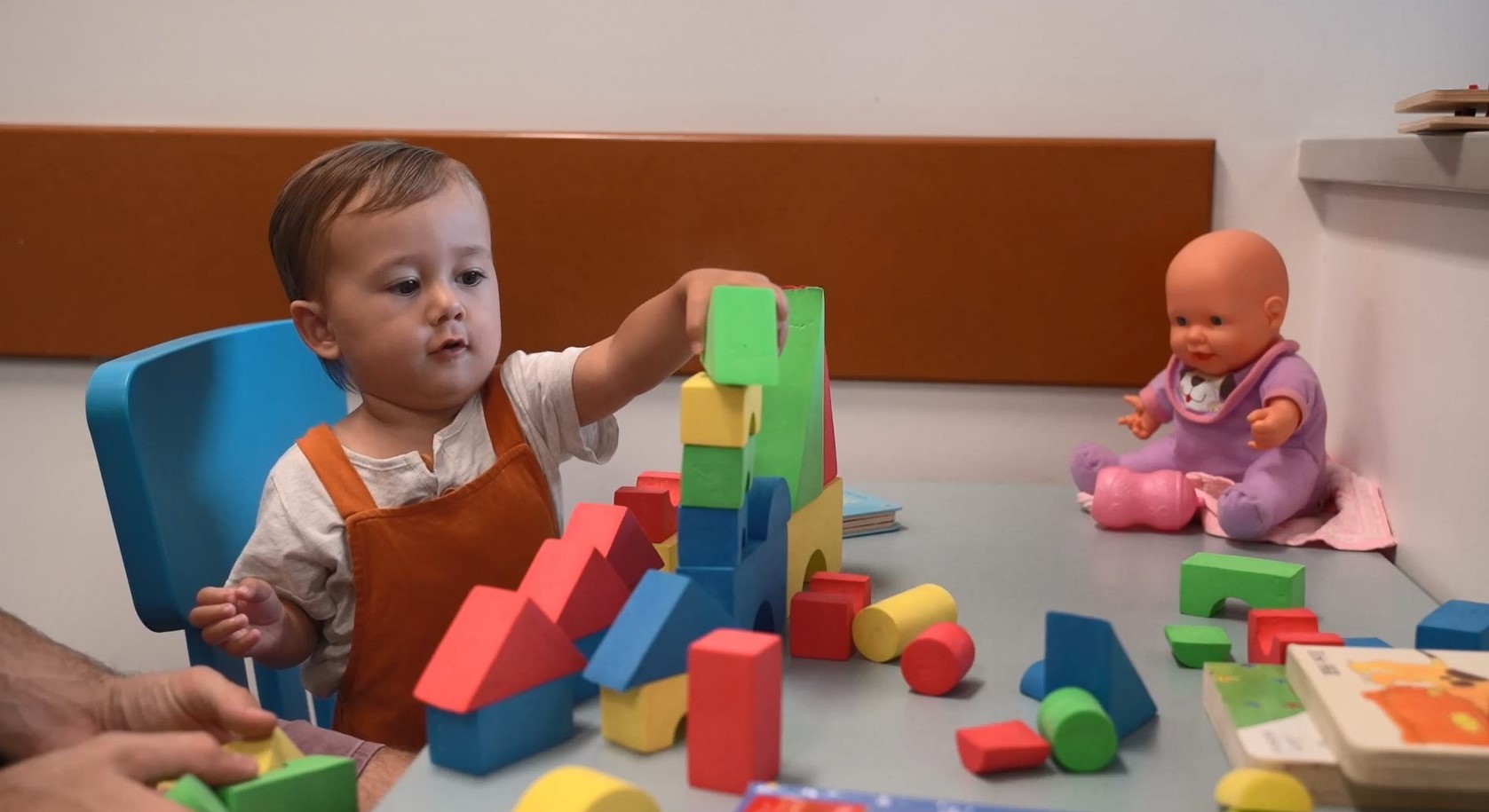Early communication skills or prelinguistic skills are the foundation skills that your child needs before they start using their first words. These skills are developing from infancy. These skills include:
- Back and forth interactions
- Turn taking
- Looking and listening:
- Imitation of actions and sounds
- Initiating communication with gesture
- Playing

Building turn taking skills
To support your child to develop their early communication skills firstly you need to ensure that you and your child have enjoyable back and forth interactions.
Turn Taking During Daily Activities
- Peek-a-boo
- Clapping Hands (i.e. Pat a Cake)
- Playing with Pop-Up Toys
- Blowing Bubbles
- Scooping sand into bucket
- Putting rings on a stacker
- Putting shapes in a shape sorter
- Splashing water in the bath
- Pushing a car back and forth
- Rolling a ball back and forth
- Singing songs and rhymes: Pause while singing to give the child an opportunity to look at you to show they want you to continue.
- Block tower: Practise adding blocks to a tower, then once built allow your child to push the tower down, next time it can be your turn.
- Reading: Take turns selecting a book to read, turning the page, naming characters in the story.

Building imitation skills
Imitation is a key foundation skill that shows us if a child is ‘developmentally ready’ for learning speech and language. Once a child can imitate a range of actions, facial movements, sounds and words, this ‘opens the gate’ to language learning.
Building imitation of actions with your child
Encourage your child to imitate your actions during play and everyday interactions.
| Actions with Object | Imitation of Actions |
|---|---|
| Pat a Doll | Clap hands |
| Feed a doll | Raise hands (hands up) |
| Put blocks in a bucket | Rub hands together |
| Rings on a pole | Bang the table (open hand) |
| Roll a ball or throw a ball | Pat head |
| Knock over blocks | Bang fist on table |
| Stir with a spoon | Raise hand (give me five) |
| Bang two blocks together | Tap legs |
| Wash face | Tap tummy |
| Banging on a drum | Stamp your feet |
Building initiation of gesture with your child
Gestures helps children to get their message across. If an adult uses gesture, it can also help develop a child’s understanding of key words in sentences.
The development of these gestures and facial expressions will help your child with their ability to communicate and socialise with others:
| Waving | Covering face | High 5 |
| Smiling | Blowing kisses | Thumbs up |
| Nodding head | Shaking head | “Shhh” gesture |
| Frowning | Pointing | Reaching |
Building imitation of vocalisation with your child
Before children say their first words, they need many opportunities to practice making sounds and noises. Initially a baby may only make a couple of sounds, but as they get older, they are able to make many more sounds. This 'practicing' is an important part of learning to talk. It is easier for your baby to take turns in making sounds when you copy a sound that your baby has already made. Playfully imitate sounds that your baby has just produced (do this straight after your baby has produced a sound). Encourage your child to imitate your vocalisations by making all kinds of sounds.
Fun sounds to use everyday
- Playful sounds: “yay,” “wow,” “weeee,” “uh oh,” “oops” or “Pop! Pop! Pop!” - This one is perfect for when you are playing with bubbles with your child.
- Animals sounds: Moo/Oink/Baa/Woof! While playing with animals or reading about them, use animal sounds and see if your child tries them out.
- Environmental sounds: “beep beep” with a car, “choo choo” with a train, siren for an ambulance or fire truck “wee aww wee aww”
- Exclamatory sounds: Boom! Crash! You can make this sound when something falls over, like blocks.

For more information visit:
Why Interaction Must Come Before Language (hanen.org)
References:
Koohi, A.L. The Power of Turn-taking: How Back-and-forth Interactions Help Children Learn Language. Child Care Dev. 2018.
Newman, R. S., Rowe, M. L., & Bernstein Ratner, N. (2016). Input and uptake at 7 months predicts toddler vocabulary: the role of child-directed speech and infant processing skills in language development. Journal of child language, 43(5), 1158–1173. https://doi.org/10.1017/S0305000915000446




